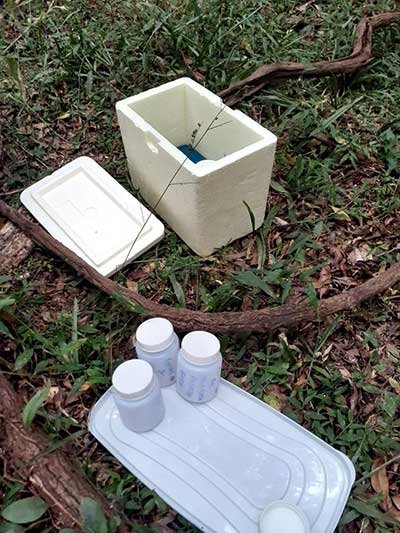The Municipal Secretary of Health (SMS) of Caxias do Sul reports the confirmation of a case of yellow fever in a howler monkey this year. It is the first suspected and confirmed situation in 2023 and serves as a warning for the circulation of the disease. There are currently no other cases under investigation.
The animal was found dead in Parada Cristal, considered a peri-urban area (transition between rural and urban areas). According to veterinarian Rogério Poletto, technical director of Environmental Health Surveillance, in rural environments, yellow fever is transmitted by the Haemagogus mosquito, which lives in hollow trees, stone holes, bromeliads, that is, in places that are difficult to control.
In urban areas, however, yellow fever is transmitted by Aedes aegypti, the same vector as dengue fever. In this case, the main form of prevention is to eliminate points with stagnant water to stop the mosquito from reproducing, as it is in these places that the Aedes lays its eggs.
There is a vaccine against yellow fever. People who have already made this vaccine no longer need to apply it, as immunity is permanent. For those who haven’t yet, the Basic Health Units (UBSs) apply on Wednesdays (due to the short validity of the immunizer, the vials are opened only one day a week).
The vaccine is part of the routine schedule for unvaccinated children, adolescents and adults up to 59 years old. SMS guidance is for the entire population to be vaccinated, especially those living in rural areas.
“The howler monkey with confirmed yellow fever is an indicator that yellow fever is circulating. That’s why it’s so important that the unvaccinated population gets vaccinated, whether it’s the fixed population or the mobile population, which are those people who do tourism or work only during the harvest period”, explains Poletto.

The most recent case of yellow fever in humans in Caxias do Sul occurred in 2018, when a resident contracted the disease in another state.
Cases of monkeys found dead can be reported directly to the Environmental Health Surveillance by calling 3202-1438, from 8 am to 5 pm. The Health Department also directs the population not to sacrifice or mistreat howler monkeys, since they are not transmitters of yellow fever to humans, since transmission occurs through mosquito bites.






